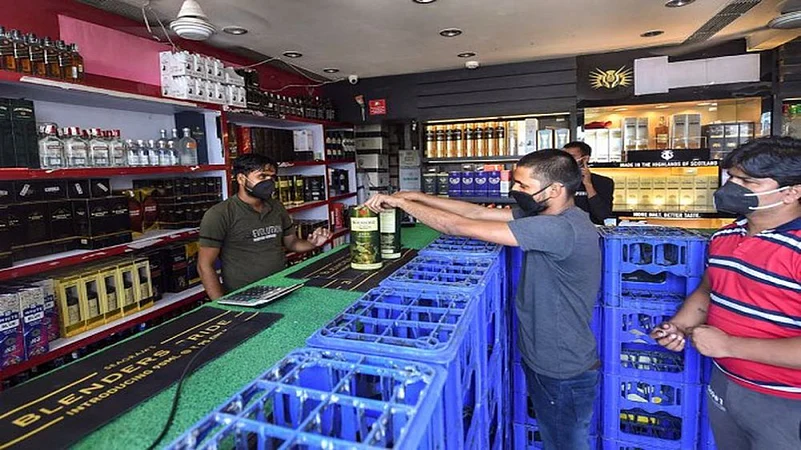The Delhi government Tuesday informed the Delhi High Court that its Excise Policy of 2021 will continue beyond March 2022 and there will not be any "new change" in it for the next financial year.
Senior counsel Parag Tripathi, appearing for one of the petitioners who is a liquor wholesaler, said there was an urgency in the matter as “all will be over after March 31” with the policy coming to an end.
Senior advocate Rahul Mehra, representing the Delhi government, informed the court that the policy came into operation on November 16 last year and the petitioner's stand with respect to the expiry of the policy was not correct.
“There will be no new change now. This (policy) will continue. This change came after 30-40 years,” stated the senior lawyer who further submitted that the Supreme Court also “did not interfere” with the implementation of the new regime at the interim stage.
The court took the Delhi government's stand on record and directed the parties to file their written submissions in the matter. Senior advocates Tripathi and G Tushar Rao, who represented another petitioner who is a retailer, argued that the new policy facilitated monopoly and was discriminatory.
Several petitions are pending before the high court against the New Excise Policy on the ground that it is illegal, unfair, arbitrary and violative of the Delhi Excise Act, 2009.
In July, the court had refused to stay the new Excise Policy on the petition by Readymade Plaza India Pvt Ltd which contended that the new regime would lead to complete monopoly of the few big players.
The Delhi government has however defended the Excise Policy 2021, saying it would generate optimum revenue and ensure ease of doing business while eliminating cartelization, proxy players and monopoly.
In its response to the pending petitions, it has said that privatization of government liquor vends and re-distribution of all liquor vends equitably across the national capital “would most certainly lead to a manifold increase in free competition and overwhelm existing cartels in the market”.
Asserting that the citizens of India have no fundamental right to trade in liquor, the government said that the Excise Policy 2021-22 was formulated in larger public interest and since it is a matter of economic policy, it does not warrant judicial interference.
Licence regarding home delivery of liquor has been in existence since long and would now result in less overcrowding outside the liquor store/shops, it has added. The matter will be listed for next hearing in February.
With inputs from PTI.


























